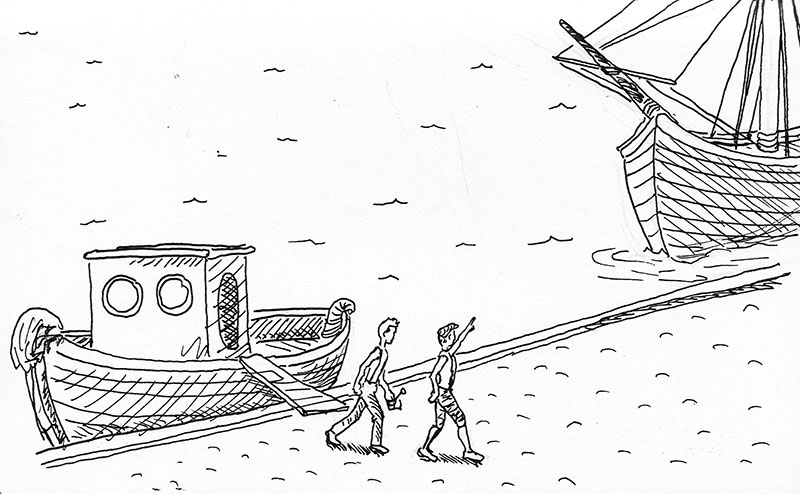We came then near the river. We spent a long time walking about the noisy streets flanked by high stone walls, watching the working of cranes and engines and often being shouted at for our immobility by the drivers of groaning carts. It was noon when we reached the quays and, as all the labourers seemed to be eating their lunches, we bought two big currant buns and sat down to eat them on some metal piping beside the river. We pleased ourselves with the spectacle of Dublin’s commerce—the barges signalled from far away by their curls of woolly smoke, the brown fishing fleet beyond Ringsend, the big white sailing-vessel which was being discharged on the opposite quay. Mahony said it would be right skit to run away to sea on one of those big ships and even I, looking at the high masts, saw, or imagined, the geography which had been scantily dosed to me at school gradually taking substance under my eyes. School and home seemed to recede from us and their influences upon us seemed to wane.
We crossed the Liffey in the ferryboat, paying our toll to be transported in the company of two labourers and a little Jew with a bag. We were serious to the point of solemnity, but once during the short voyage our eyes met and we laughed. When we landed we watched the discharging of the graceful threemaster which we had observed from the other quay. Some bystander said that she was a Norwegian vessel. I went to the stern and tried to decipher the legend upon it but, failing to do so, I came back and examined the foreign sailors to see had any of them green eyes for I had some confused notion…. The sailors’ eyes were blue and grey and even black. The only sailor whose eyes could have been called green was a tall man who amused the crowd on the quay by calling out cheerfully every time the planks fell:
“All right! All right!”

